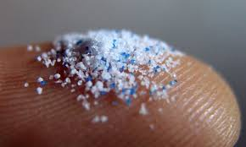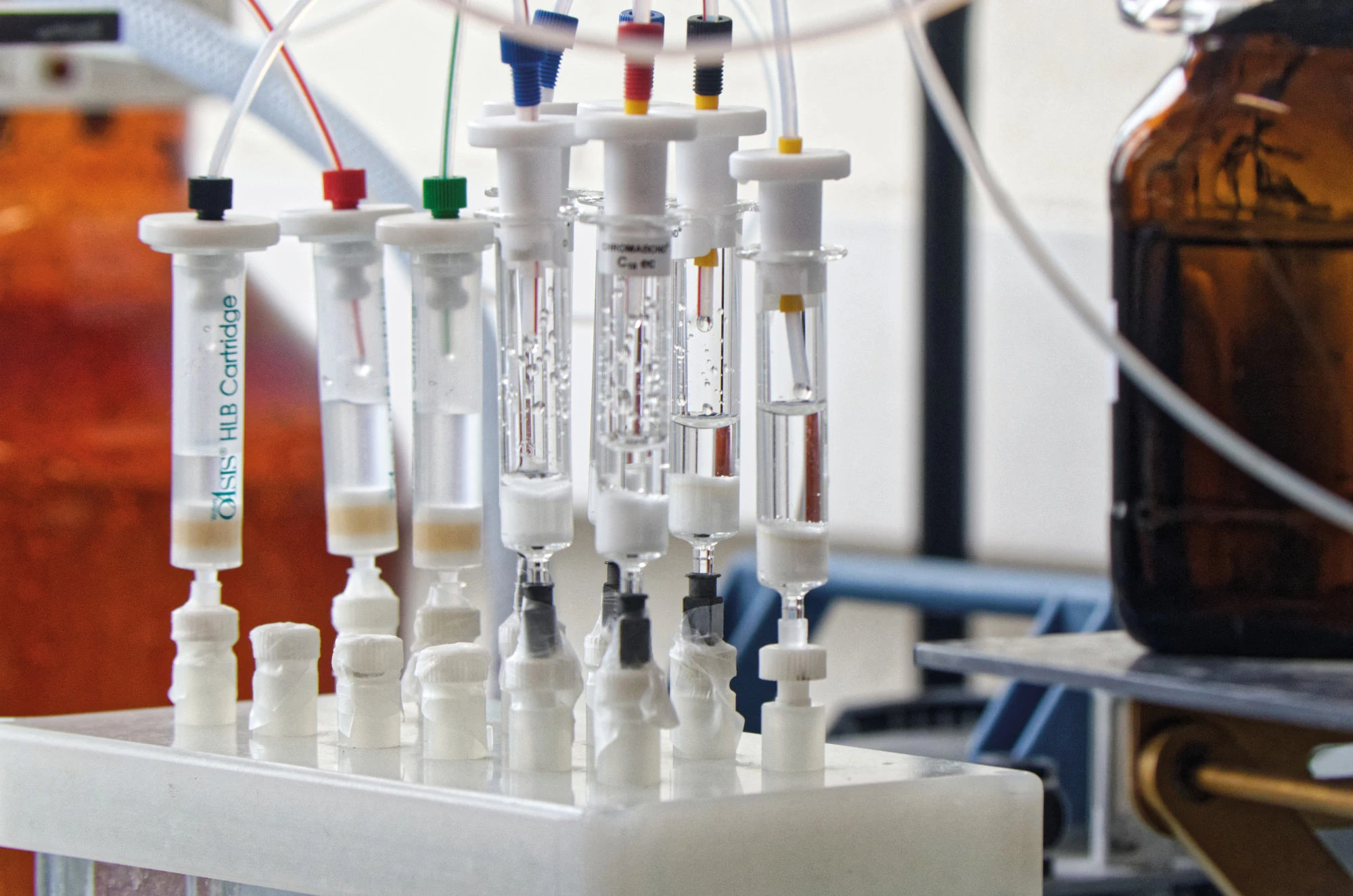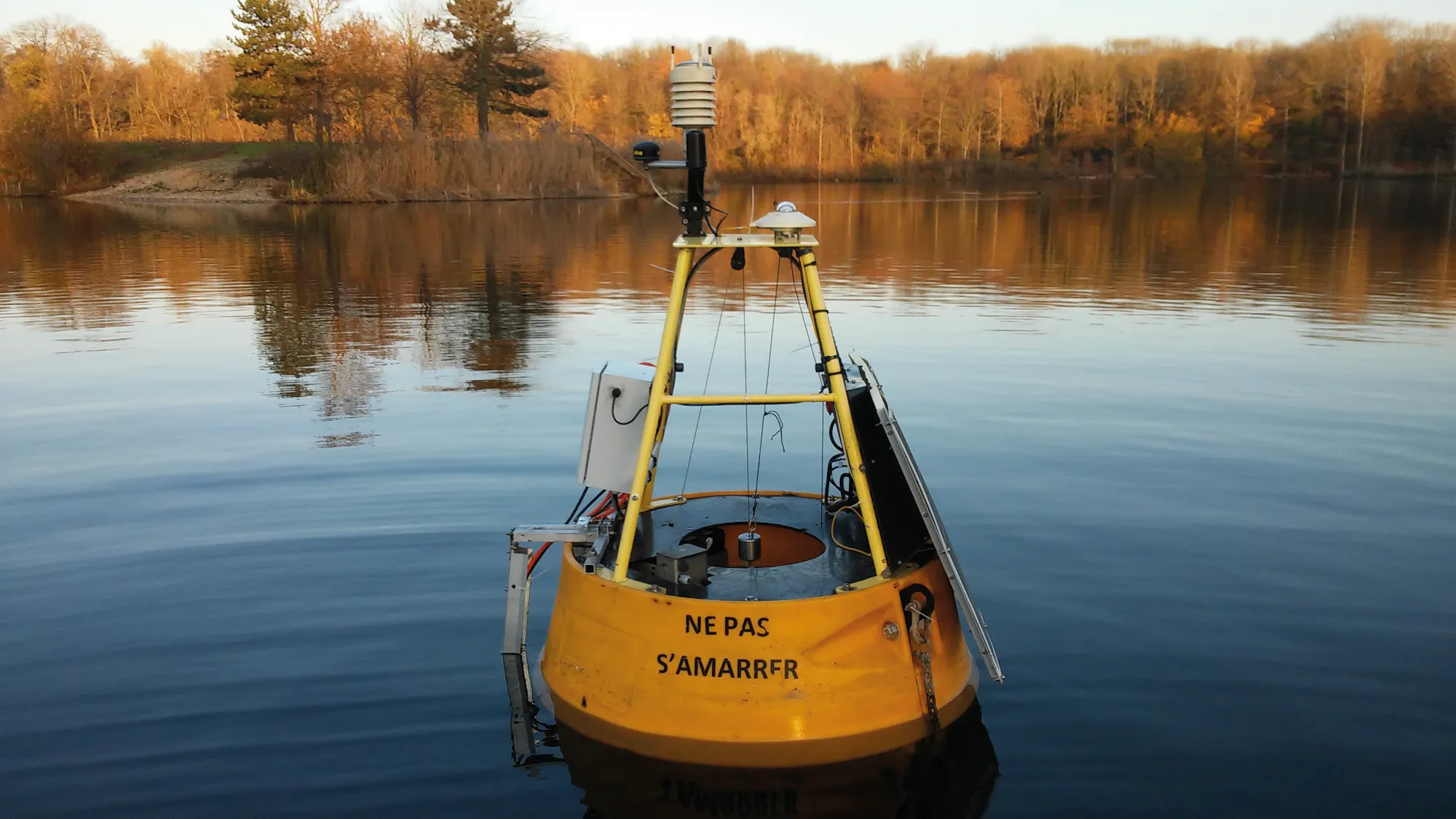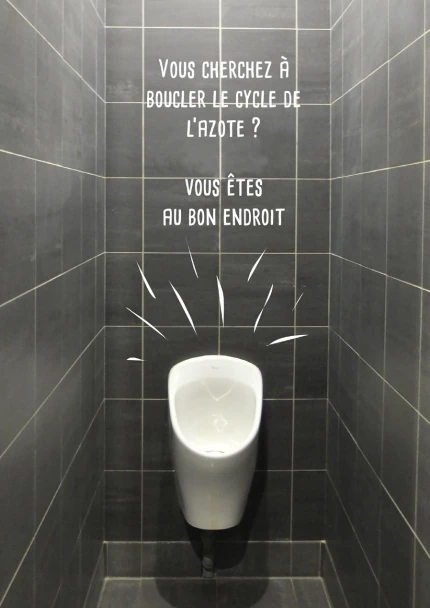- Recrutements
- Contacts
- Annuaires
- Choix du langage :
Dernières publications
950.
- titre
- Do suspended particles matter for wastewater-based epidemiology?
- auteur
- Gauthier Bernier-Turpin, Régis Moilleron, Chloé Cenik, Fabrice Alliot, Sabrina Guérin-Rechdaoui, Thomas Thiebault
- article
- , In press, 280, pp.123543. ⟨10.1016/j.watres.2025.123543⟩
- titre
- Stock and vertical distribution of microplastics and tire and road wear particles into the soils of a high-traffic roadside biofiltration swale
- auteur
- Max Beaurepaire, Tiago de Oliveira, Johnny Gasperi, Romain Tramoy, Mohamed Saad, Bruno Tassin, Rachid Dris
- article
- , 2025, 373, pp.126092. ⟨10.1016/j.envpol.2025.126092⟩
- titre
- Assessing water quality restoration measures in Lake Pampulha (Brazil) through remote sensing imagery
- auteur
- Alexandre Assunção, Talita Silva, Lino de Carvalho, Brigitte Vinçon-Leite
- article
- , 2025, ⟨10.1007/s11356-025-35914-6⟩
- titre
- How to monitor and forecast microbiological quality in bathing sites in urban water bodies? The La Villette study site (Paris)
- auteur
- Arthur Guillot - Le Goff, Natalia Angelotti de Ponte Rodrigues, Rémi Carmigniani, Brigitte Vinçon-Leite
- article
- , 2025, TSM 12/2024, pp.219-228. ⟨10.36904/tsm/202412219⟩
- titre
- Modelling evapotranspiration in urban green stormwater infrastructures: Importance of sensitivity analysis and calibration strategies with a hydrological model
- auteur
- Ahmeda Assann Ouédraogo, Emmanuel Berthier, Jérémie Sage, Marie-Christine Gromaire
- article
- , 2025, 185, pp.106319. ⟨10.1016/j.envsoft.2025.106319⟩
LimnoPlast : lancement du programme avec le Leesu
publié le , mis à jour le
Microplastiques dans les rivières et les lacs : Début d’un projet de recherche européen impliquant le Leesu
Rachid Dris et Bruno Tassin ont participé entre le 25 et le 27 novembre 2019 au lancement officiel du projet européen de recherche et de formation Limnoplast sur la distribution des microplastiques dans les rivières et lacs européens, à l’Université de Bayreuth.
Ce « Réseau de formation innovant (ITN) » est financé pour quatre ans à hauteur de près de 4,1 millions d’euros par l’UE sur son programme « Horizon 2020 » dans le cadre des mesures Marie Skłodowska Curie. Du 25 au 27 novembre 2019, les partenaires internationaux du projet ont discuté des prochaines étapes du projet sur le campus de Bayreuth. Il est soutenu par 13 universités, instituts de recherche et partenaires industriels de huit pays européens et coordonné par le professeur Christian Laforsch de l’Université de Bayreuth.
Equipe Limnoplast à l’Université de Bayreuth (26 novembre 2019) @ LimnoPlast
Les petits déchets plastiques microscopiques, aussi appelés microplastiques, représentent un défi pour les écosystèmes d’eau douce du monde entier. Cependant, on ne sait pas encore très bien d’où proviennent les particules et comment elles pénètrent dans les rivières et les lacs. De même, il n’existe toujours pas de recherche exhaustive sur la façon dont les particules microplastiques présentes dans l’environnement affectent les humains ou les animaux, et encore moins des écosystèmes entiers. Le nouveau projet de l’UE sous le nom abrégé « LimnoPlast » vise donc à aborder le thème des « microplastiques dans les écosystèmes d’eau douce » dans une perspective holistique.
Au cours des prochaines années, quinze doctorants interdisciplinaires des domaines des sciences des polymères et de l’ingénierie, de la toxicologie et de l’écologie, des sciences environnementales, sociales et juridiques, de la psychologie et de la psychologie pourront utiliser leurs travaux de recherche pour répondre aux questions centrales sur l’origine, la distribution et les effets des microplastiques sur les systèmes d’eau douce et développer, à partir de ces connaissances, des solutions au défi des microplastiques. Des études de cas exemplaires exploreront les écosystèmes d’eau douce autour des trois zones urbaines d’Aarhus, Amsterdam et Paris. Deux de ces doctorants rejoindront Leesu en mai 2020.
« LimnoPlast » est le premier projet européen à mettre systématiquement en réseau les sciences naturelles, environnementales, techniques et sociales dans le domaine de la recherche microplastique.
Outre les 13 partenaires européens directement impliqués dans l’encadrement et le soutien scientifique des doctorants, onze autres organisations partenaires de la science et de l’industrie sont impliquées dans le projet. Il en résulte certainement un large éventail interdisciplinaire. Outre des manifestations scientifiques, par exemple sur la toxicologie des microplastiques et la détection des particules microplastiques dans l’environnement, des sessions de formation sur le thème des "compétences transférables et non transférables" et des informations sur les nombreuses possibilités de carrière associées à ce travail sont proposées. Les entreprises Evonik et BASF, par exemple, invitent à des ateliers dans le domaine « Innovation et entrepreneuriat ». Entre-temps, l’Institut fédéral allemand d’hydrologie, l’Agence fédérale allemande pour l’environnement, le DIN-Institut (l’Institut allemand de normalisation) et l’UNESCO présenteront des offres d’emploi dans le secteur public. PlasticsEurope organise une « Journée de l’industrie » et fournit des informations sur les opportunités de carrière dans l’industrie, tandis que PlasticSoupFoundation donnera un aperçu du travail d’une organisation non gouvernementale.
Contacts
- LEESU à ENPC et UPEC :
Bruno Tassin / Johnny Gasperi / Rachid Dris
Tél. : + 33 667 668 234 / +33 614 997 464 / + 33 661 123 564
Courriels : Bruno.tassin(AT)enpc.fr / gasperi(AT)u-pec.fr / Rachid.Dris(AT)enpc.fr
- Coordinateur du programme
Prof. Dr. Christian Laforsch, Animal Ecology I, Université de Bayreuth
Tél. : +49 (0) 921 / 55-2651
Courriel : christian.laforsch(AT)uni-bayreuth.de
- Directrice du programme
Dr. Elisabeth Rieger
Tél. : +49 (0) 89 / 189 4168 35
Courriel : rieger(AT)chemiecluster-bayern.de









 Productions scientifiques
Productions scientifiques Moyens techniques et équipements
Moyens techniques et équipements Expertise et disciplines
Expertise et disciplines



